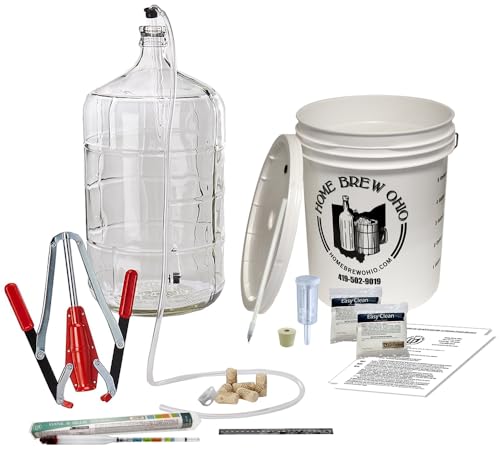MrFrench
Member
I have 1gallon of a country wine in a demijohn. It had fermented dry so at the end of January it was sulphited, racked, degassed and sorbated with 1/2 tsp.
After this the wine would be stored for a couple of months before tasting and back-sweetening if needed.
So, a few days after adding sorbate i topped it off with a similar wine to get rid of the headspace. It was only about 50ml of wine added, but this was from a just-finished wine which had not been sulphited or sorbated yet. I’m worried I might have introduced live yeast again.
Will it need to be sorbated again? Or will the sorbate added a few days before be sufficient to stop any new population from establishing when backsweetening?
Thankyou!
After this the wine would be stored for a couple of months before tasting and back-sweetening if needed.
So, a few days after adding sorbate i topped it off with a similar wine to get rid of the headspace. It was only about 50ml of wine added, but this was from a just-finished wine which had not been sulphited or sorbated yet. I’m worried I might have introduced live yeast again.
Will it need to be sorbated again? Or will the sorbate added a few days before be sufficient to stop any new population from establishing when backsweetening?
Thankyou!



















































